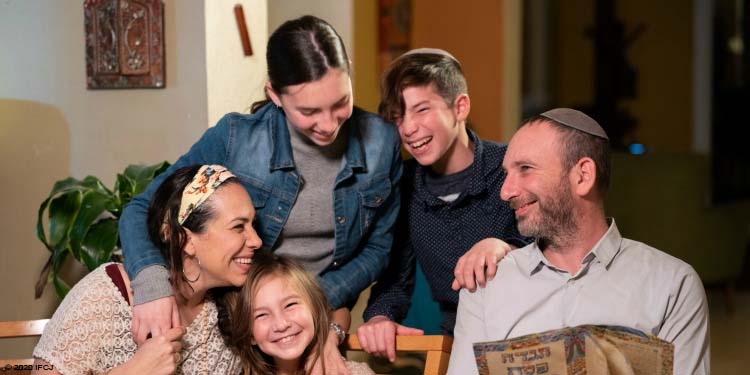Be Mindful of Our Family’s Needs
Yael Eckstein | December 2, 2022

Her husband has full confidence in her
and lacks nothing of value.
She brings him good, not harm
all the days of her life. — Proverbs 31:11-12
We continue with devotional thoughts from the Book of Proverbs every Friday. One of the 11 books in the Torah known as the Ketuvim, Hebrew for “writings,” Proverbs is part of the “wisdom tradition,” which also includes Job and Ecclesiastes.
As the leader of a large international organization who is also a wife and mother, my life can feel like a juggling act. I often find myself in the midst of a major work decision or an emergency trip to visit a Jewish community in distress, while also balancing the needs of my husband and children. Let’s just say that it’s not always easy.
As a woman leader, one of my main role models is the biblical prophet Deborah. Deborah led the nation of Israel during the period of the Judges. She judged the nation, made major decisions — including leading the nation through a major war — and all the while, she brought only honor to her husband and family.
When the Bible first introduces Deborah, she is called the “wife of Lappidoth.” The Jewish sages explained that this is the Bible’s way of telling us that even as she ascended to national leadership, Deborah’s marriage remained strong. And, trust me, this is no small thing. It is all too easy for a position of public leadership to get in the way. Deborah’s example of putting family first continues to inspire me.
Be Mindful of Our Family’s Needs
Proverbs 31, which describes the “woman of valor,” emphasizes this same idea. We read, “Her husband has full confidence in her and lacks nothing of value. She brings him only good, not harm, all the days of her life.”
Why does this verse include the words, “not harm?” The verse could have said, “She brings him good all the days of her life.” The words “not harm” seem to be superfluous. Obviously, if she bestows “only good” on her husband, we know that she does not bestow harm upon him. And why would a loving wife do harm to her husband anyway?
The lesson here is that sometimes we can think we are doing our best for our family and our spouse, but there is a negative side-effect of the good we do, even if we didn’t intend it. As a woman leader, I know that even as I work to do the best job I can to benefit so many people with my work, I can undermine my closest relationships if I am not careful.
By stressing that a true woman of valor bestows only “good, not harm” upon her husband, Proverbs 31 teaches me, as a woman leader, to be mindful of my family’s needs, and understand the full implications that doing good in my public position has on my husband and family.
Your Turn:
Are you as mindful as you can be of the effect of your work, or volunteer activities, on your family? Be mindful of the needs of those closest to you.
